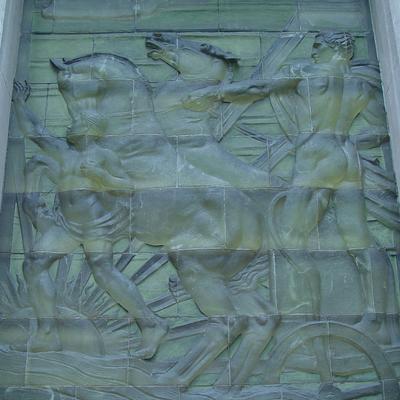Plutocratic philanthropy shaped education
“In our dreams, people yield themselves with perfect docility to our molding hands. The present education conventions of intellectual and character education fade from their minds and unhampered by tradition we work our own good will upon a grateful and responsive folk. We shall not try to make these people or any of their children into men of learning or philosophers, or men of science. We have not to raise up from them authors, educators, poets or men of letters, great artists, painters, musicians, nor lawyers, doctors, statesmen, politicians, creatures of whom we have ample supply. The task is simple. We will organize children and teach them in a perfect way the things their fathers and mothers are doing in an imperfect way.”

…
In 1905 J.D. Rockefeller kick-started the creation of the General Education Board (GEB). Rockefeller alone, with 1905 dollars, initially gifted $1 million dollars, then increased it to $10 million in 1907, later a further sum of $32 million and through subsequent decades granted some $7.5 billion. With significant money buys significant influence and loyalty.
In 1913, the Sixty-Second Congress created a commission to investigate the role of these newly created NGO foundations. The commission after a year of testimony concluded:
“The domination of men in whose hands the final control of a large part of American industry rests is not limited to their employees, but is being rapidly extended to control the education and social services of the nation. The giant foundation exercises enormous power through direct use of its funds, free of any statutory entanglements so they can be directed precisely to the levers of a situation; this power, however, is substantially increased by building collateral alliances which insulate it from criticism and scrutiny.”
In 1913, the Sixty-Second Congress created a commission to investigate the role of these newly created NGO foundations. The commission after a year of testimony concluded:
“The domination of men in whose hands the final control of a large part of American industry rests is not limited to their employees, but is being rapidly extended to control the education and social services of the nation. The giant foundation exercises enormous power through direct use of its funds, free of any statutory entanglements so they can be directed precisely to the levers of a situation; this power, however, is substantially increased by building collateral alliances which insulate it from criticism and scrutiny.”

…
“We view with alarm the activity of the Carnegie and Rockefeller Foundations—agencies not in any way responsible to the people—in their efforts to control the policies of our State educational institutions, to fashion after their conception and to standardize our courses of study, and to surround the institutions with conditions which menace true academic freedom and defeat the primary purpose of democracy as heretofore preserved inviolate in our common schools, normal schools, and universities.” National Education Association meeting, 1913]http://www.wakingtimes.com/2014/01/28/untold-history-modern-u-s-education-founding-fathers/
"We want one class of persons to have a liberal education, and we want another class of persons, a very much larger class, of necessity, in every society, to forgo the privileges of a liberal education and fit themselves to perform specific difficult manual tasks.
—Woodrow Wilson, then president of Princeton University.
—Woodrow Wilson, then president of Princeton University.
Rockefeller plaque
In 1962, the center management placed a plaque at the plaza with a list of principles in whichJohn D. Rockefeller, Jr. believed, and first expressed in 1941. It reads:[29]
I believe in the supreme worth of the individual and in his right to life, liberty, and the pursuit of happiness.
I believe that every right implies a responsibility; every opportunity, an obligation; every possession, a duty.
I believe that the law was made for man and not man for the law; that government is the servant of the people and not their master.
I believe in the Dignity of labor, whether with head or hand; that the world owes no man a living but that it owes every man an opportunity to make a living.
I believe that thrift is essential to well ordered living and that economy is a prime requisite of a sound financial structure, whether in government, business or personal affairs.
I believe that truth and justice are fundamental to an enduring social order.
I believe in the sacredness of a promise, that a man’s word should be as good as his People Power — Plutocratic philanthropy shaped education:

